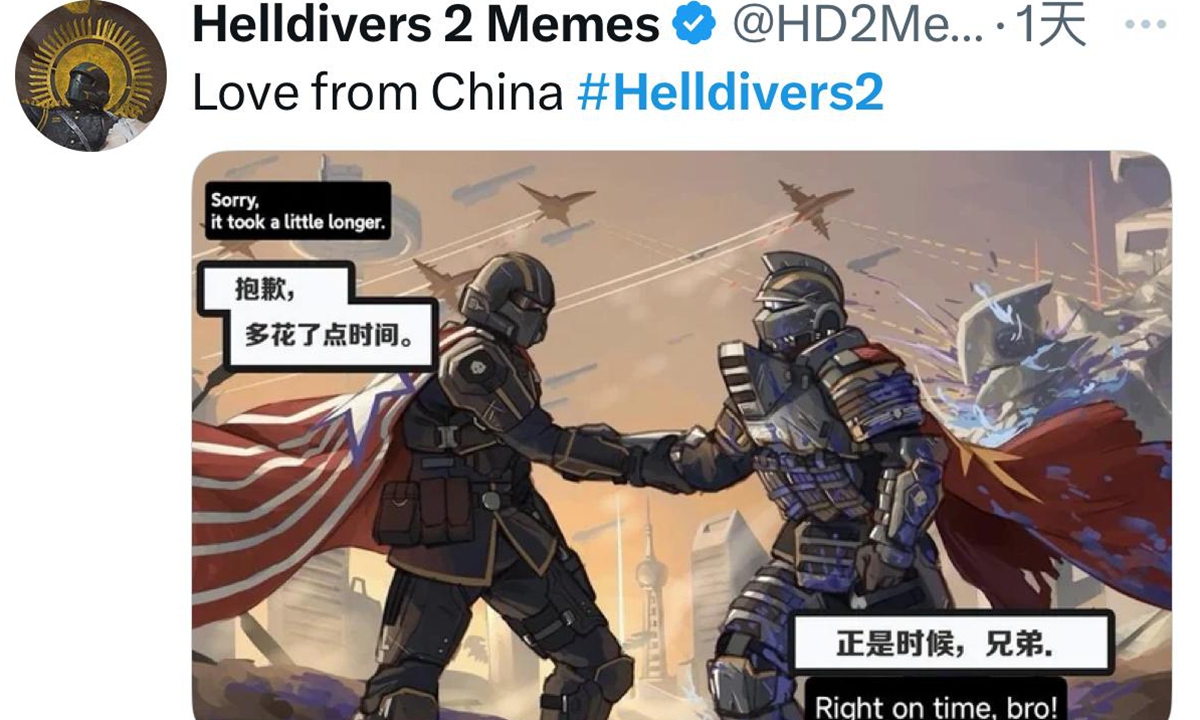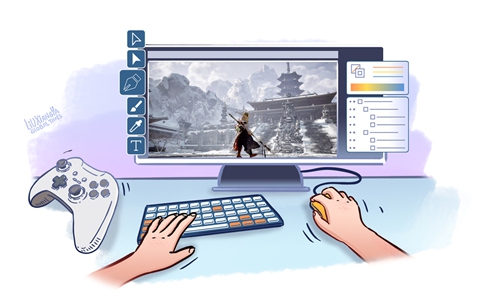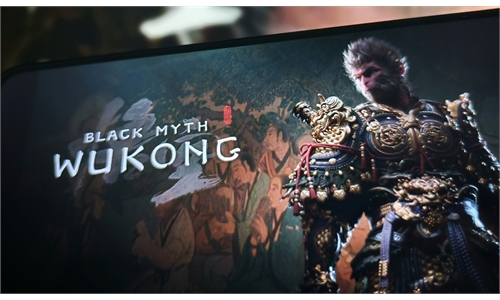ARTS / VIDEO GAMES
More than a game: players across borders unite to defend virtual Earth

Photo: Screenshot from the Internet
The latest storyline in the shooter game Helldivers 2 features an alien invasion of a virtual Earth, with seven major landmarks mirroring real-world cities such as Shanghai, New York, and Stockholm. As the campaign teetered on the brink of failure, players from around the world began coordinating across time zones, defending each other's cities while their allies rested. As Shanghai held out, the planet was saved, and what began as a game evolved into a rare moment of global emotional resonance among players, according to China News Service.
Helldivers 2 presents itself as a game where players' actions on the battlefield directly shape the narrative. In theory, successfully defending any one of the seven landmark cities would be enough to end the alien invasion storyline. Yet as the fight dragged on, players began to suspect that some unseen force was standing in the way of victory.
As suspicions of a "predetermined fate," a remarkable alliance gradually began to form. Many determined players started collaborating across regions, using time zone differences to their advantage—defending each other's home bases while the other side rested. For example, Chinese gamers helped defend New York, while American players stood guard over Shanghai.
One Chinese player recalled fighting alongside American teammates, saying, "I told them, 'Don't save me,' and they replied, 'We can wait. We will." Chinese players, in turn, made great efforts to stop New York from falling.
As other cities fell one by one, Shanghai became Earth's final stronghold. As the campaign wore on, players began noticing increasingly strange data patterns—progress bars freezing just short of completion, percentages stuck at critical thresholds. The alliance gained a new dimension: a resistance not just against alien invaders, but against a game world that felt rigged.
The coordinated effort between Chinese and American players culminated on the evening of Friday (Beijing time), when Helldivers 2 officially announced that Shanghai had been successfully defended and the alien forces had retreated from Earth.
Looking back, the campaign was filled with moving moments. Early on, some foreign players didn't understand why Chinese players were so determined to protect virtual Shanghai. In response, Chinese players shared stories of real-life battles like the Battle Shanghai during the Chinese People's War of Resistance Against Japanese Aggression and the World Anti-Fascist War, transforming the game into a space for unexpected historical exchange and deep emotional resonance.
As the joint resistance against the alien invasion stretched thin across multiple fronts, both Shanghai and New York came under mounting pressure, especially the latter. Facing overwhelming odds, some American players made the difficult choice to abandon the defense of New York and concentrate their efforts on supporting Shanghai.
New York's "sacrifice" did not go unnoticed. After victory was secured, Chinese players paid tribute to their allies' decision, recognizing the solidarity and selflessness behind it. In today's complex international climate, such heartfelt cross-border connections—spanning geography, culture, and language—are all the more precious.
The game may be fictional, but the human emotions stirred empathy, trust, and mutual respect — are deeply real. In rewriting the game's ending together, players also hinted at a greater hope: that the spirit of cooperation forged here might one day help shape a better world beyond the screen.
Global Times



